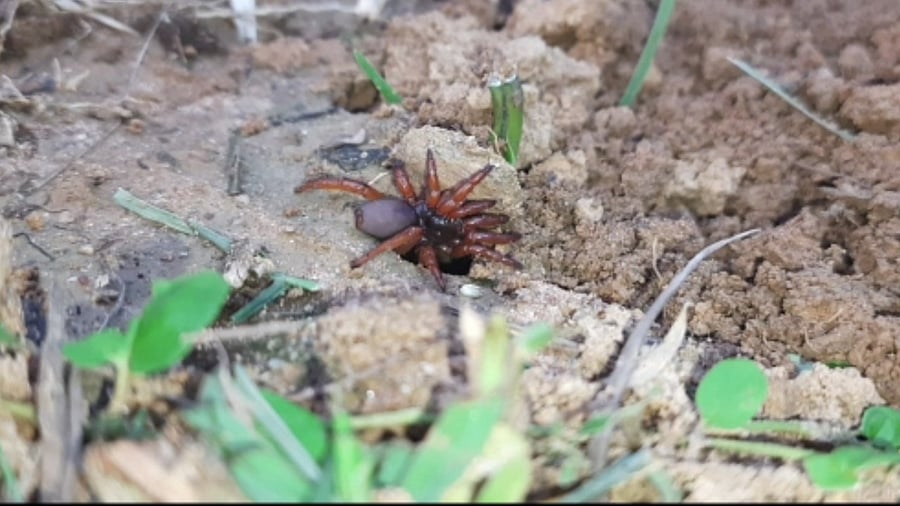
A scientist from West Bengal has discovered a new species of trapdoor spider and has named it after Sir Jagadish Chandra Bose, the renowned biologist and physicist from West Bengal.
Suman Pratihar, a zoologist from the Department of Zoology, Sukumar Sengupta Mahavidyalaya, Keshpur in West Bengal, along with his BSc student Julia Khatun in 2020, collected the species from a roadside burrow in a plantation area. The species is now named Heligmomerus jagadishchandra.
Trapdoor spiders are among the poorly documented invertebrates in India as they are not easily traced. They are an ancient species that do not build webs to trap their prey. They specialise in constructing camouflaged trap door burrows on earthen surfaces, mounds or roadside openings, and hide from the public eye very easily. When they feel the presence of their prey through vibrations, they come out, trap it and eat.
After collaborative research with researchers of Indraprastha University in Delhi, where the specimen of the spider has been deposited, the study was published in the August issue of Serket, a peer-reviewed Arachnological journal published in Egypt, in August 2022,
"Ancient spiders are happily living in this part of India even amid the crisis of habitat loss and environmental degradation," says Pratihar. In 2020, he discovered another species, Idiops medini, yet another trapdoor spider named after the district where it was found.
"This is the first time that an animal/insect has been named after Bose, though many plants have been named after him," says Pratihar, adding that the naming was a way of offering tribute to the world-famous scientist who missed the Nobel Prize by a whisker.
